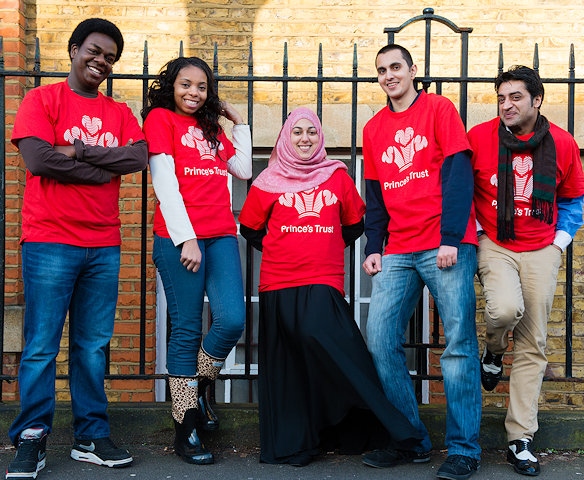Soft skills are as valuable as good grades, according to Prince’s Trust research
Date published: 30 August 2017

Soft skills are as valuable as good grades, according to Prince’s Trust research
The Prince’s Trust ‘Results for Life’ report reveals that soft skills such as teamwork, communication and confidence are considered by young people, teachers and workers in the North West to be as important to achieving success in life as good grades.
The research, sponsored by HSBC, is a national survey which gauges how much value is placed on soft skills and whether respondents feel they have enough support to learn these skills both at school and in the workplace. It shows that while young people, teachers and people in the workforce from the North West agree on the importance of soft skills, there are concerns across the board about whether local young people get enough support to develop them.
While young people in the North West consider maths and literacy to be the most important skills to learn at school, soft skills including confidence and communication are next in line – ahead of subjects like IT and languages. When asked why they think these skills are so important, 60% of young people in the North West said that having them will help them to get a job.
Worryingly, 39% of young people surveyed in the North West do not feel prepared to enter the workforce, with 43% who feel this way nationally believing their soft skills are not good enough; and 46% saying their confidence is too low. Almost half (49%) of local young people feel their school does not fully support them to develop in these areas.
When comparing these findings with the views of workers and teachers, it appears the concerns local young people raise are not unfounded. A fifth of teachers (21%) think that most of the students they teach don’t yet have all the soft skills required to do well after school, and 92% think schools should be doing more to help students to develop these skills.
Similarly, three of the top five things workers think young people most lack typically when entering the workforce are soft skills including confidence, communication and reliability, above things like maths and literacy. 75% of workers felt they themselves did not have all the soft skills to do well when they first started working, while 65% felt a lack of skills meant they struggled to find a job when they were starting out.
Andrew Ridge, Regional Director for The Prince’s Trust in the North of England said: “While young people are painfully aware of the importance of getting good grades and under incredible pressure to achieve them, this report shows that the life and character skills considered key to success in their working lives are at risk of being overlooked.
“Students, teachers and people who are in work agree that more needs to be done to ensure young people leave education with the confidence and skills they need to reach their full potential in the workplace. By working together to support them to achieve this, we can ensure the next generation of employees hit the ground running and make a formidable addition to the UK work force.”
Antonio Simoes, Chief Executive Officer, HSBC Bank plc: “Having supported The Prince’s Trust for over five years, we know the difference the right support can make to young people in education who are in need of an opportunity to hone practical skills like team work and communication. We also know the benefits these skills can have in the workplace later on, and are committed to investing in programmes that help young people put these skills into practice.”
The Prince’s Trust has long recognised the importance of helping young people to build their confidence and skill sets, as well as the value of providing support early on in their development. To this end, the charity is committed to helping thousands of young people across the UK each year to develop the soft skills they need to thrive both in education and in the workplace.
The charity’s Achieve programme, of which HSBC is the largest corporate supporter, helps young people who are at risk of underachieving at school or college to succeed in education. The programme complements existing learning in the formal education setting, supporting 11 to 19-year-olds to develop soft skills, engage with education and unlock their potential.
This year, The Prince’s Trust will support 60,000 disadvantaged young people to get their lives on track. Three in four young people supported by The Prince’s Trust move into work, education or training.
Do you have a story for us?
Let us know by emailing news@rochdaleonline.co.uk
All contact will be treated in confidence.
Most Viewed News Stories
- 1Toast of the town: Mayor of Rochdale celebrates 25 years at renowned bakery company
- 2Rochdale born entrepreneur aims to take health platform stateside
- 3The long saga of two huge housing plans to be decided this week
- 4Rochdale people could be charged for bins - and see a tax rise of 4.99% this year
- 5Work on speed limit reductions across the borough continues
To contact the Rochdale Online news desk, email news@rochdaleonline.co.uk or visit our news submission page.
To get the latest news on your desktop or mobile, follow Rochdale Online on Twitter and Facebook.

